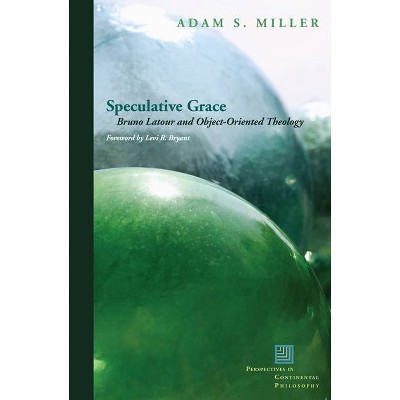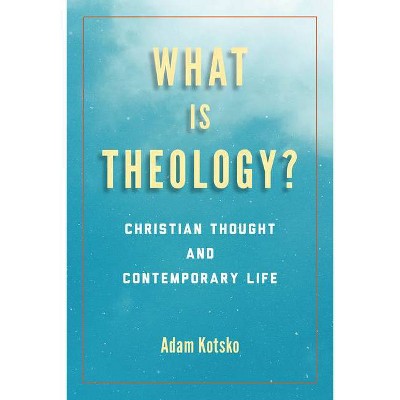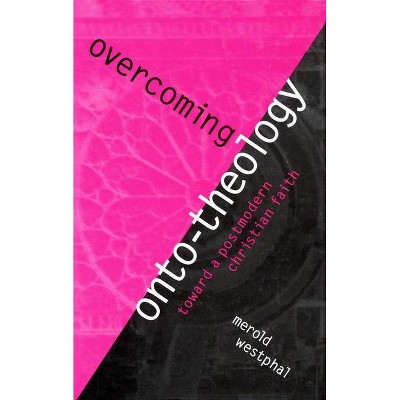Sounding/Silence - (Perspectives in Continental Philosophy) by Adam S Miller (Paperback)

Similar Products
Products of same category from the store
AllProduct info
<p/><br></br><p><b> About the Book </b></p></br></br>This book models an object-oriented approach to grace. It experimentally ports a traditional Christian understanding of grace out of a top-down, theistic ontology and into a bottom-up, agent-based ontology. A systematic account of Bruno Latour's experimental, agent-based approach to metaphysics sets the object-oriented stage.<p/><br></br><p><b> Book Synopsis </b></p></br></br><p>This book offers a novel account of grace framed in terms of Bruno Latour's "principle of irreduction." It thus models an object-oriented approach to grace, experimentally moving a traditional Christian understanding of grace out of a top-down, theistic ontology and into an agent-based, object-oriented ontology. In the process, it also provides a systematic and original account of Latour's overall project. <p/>The account of grace offered here redistributes the tasks assigned to science and religion. Where now the work of science is to bring into focus objects that are too distant, too resistant, and too transcendent to be visible, the business of religion is to bring into focus objects that are too near, too available, and too immanent to be visible. Where science reveals transcendent objects by correcting for our nearsightedness, religion reveals immanent objects by correcting for our farsightedness. Speculative Grace remaps the meaning of grace and examines the kinds of religious instruments and practices that, as a result, take center stage.</p><p/><br></br><p><b> Review Quotes </b></p></br></br><br><p>The rapidly developing field of object-oriented philosophy has been<br>crying out for significant work on its relation to philosophy of<br>religion. Adam Miller has provided us with a razor-sharp way into this<br>new world. Built around a reading of Bruno Latour's work, this is more<br>than a focused and lucid exposition. It is also a startling, <br>constructive work of theology, in which grace is translated and<br>democratized as the 'resistant availability' of objects and religion's<br>true work is located in attention to immanence, to ordinariness, to<br>the flesh. Redrawing the boundaries between science and religion, <br>philosophy and theology, this book offers a way beyond humanism<br>without escaping into fantasies of otherworldliness or purity.<br>Provocative and brilliant, Speculative Grace sets an exciting agenda<br>for future philosophical work on the object that is religion.</p><b>-----Steven Shakespeare, <i>Liverpool Hope University</i></b><br><br>Adam Miller's book can rightly be described as both a daring experiment in theology, and as a lucid exposition of the thought of the French sociologist of science Bruno Latour. But in being both of these things at once, Speculative Grace is something more: a profound meditation on the cosmos and the multitude of beings that inhabit it. This is a book that stimulates thought, and renews our sense of wonder at what William James called the 'buzzing, blooming confusion' of the world.<b>-----Steven Shaviro, <i>Wayne State University</i></b><br><p/><br></br><p><b> About the Author </b></p></br></br><br><strong>Adam S. Miller</strong> is Professor of Philosophy at Collin College in McKinney, Texas.<br>
Price History
Price Archive shows prices from various stores, lets you see history and find the cheapest. There is no actual sale on the website. For all support, inquiry and suggestion messages communication@pricearchive.us



















